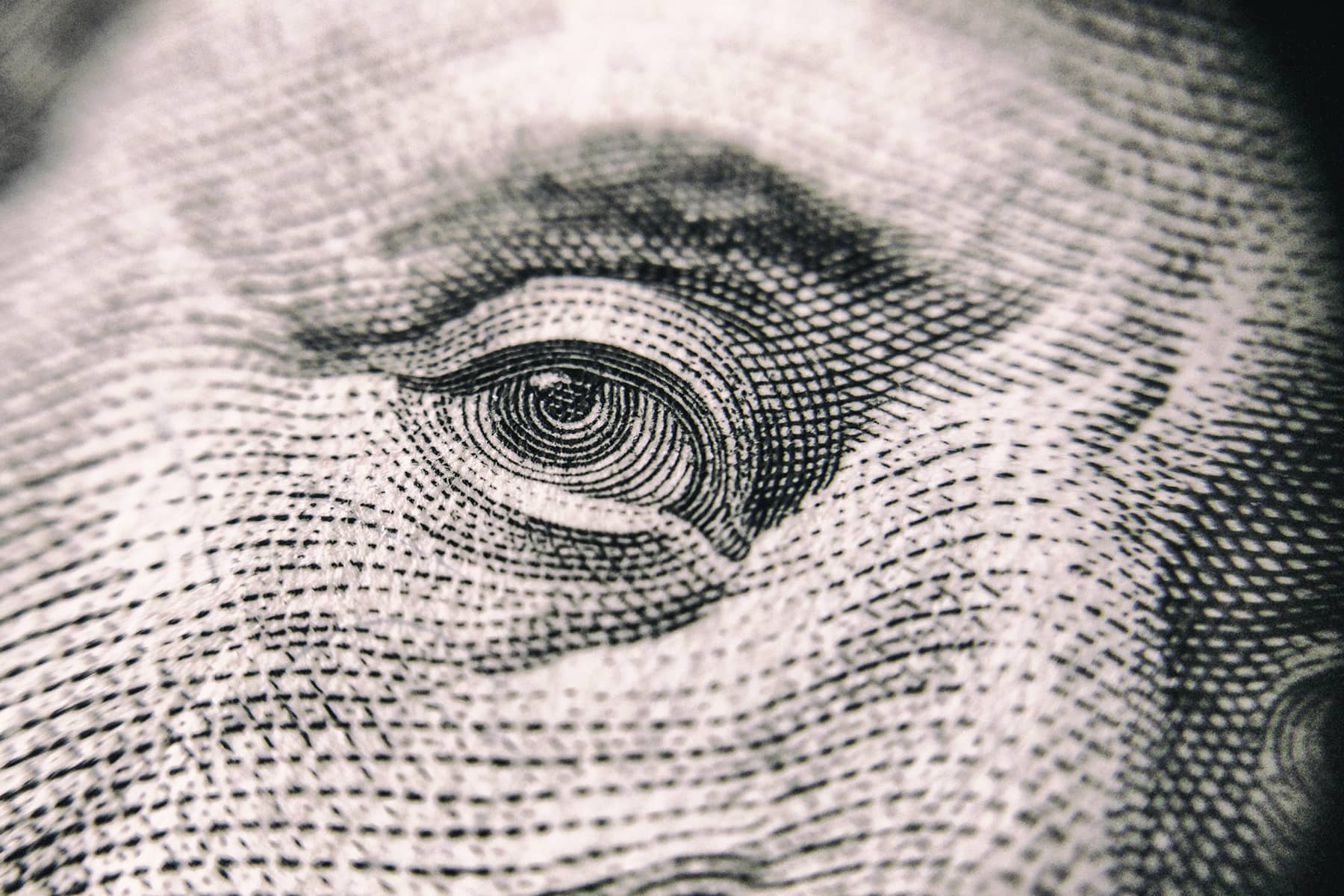
It is important now, in light of both world events and the way the Republican party has been captured by a small group of rightwing billionaires and White Supremacists, to introduce Americans to an 18th century word that is new to most people alive today, at least in the context of partisan politics.
That word is: faction. The crises caused by faction were a big deal at the founding of our republic. Faction was a matter of conversation among average people.
It was the same when the South was seized by an oligarchic faction of plantation owners and turned from a Whites-only democracy into a neofascist oligarchy in the 1840s and 1850s.
Factions are destroyers of democracies.
It was a faction of oligarchs led by Vladimir Putin that took over Russia after that country adopted Milton Friedman‘s neoliberal policies of privatization, low taxes, and deregulation, producing an explosion of billionaires who weakened the new Russian democracy by pouring outsized chunks of their money into Russia’s politics.
Russian President Putin’s disastrous decision to invade Ukraine was caused by a deficiency of democracy in Russia; whenever a country is taken over by a single person or a small group of people, such terrible decisions are inevitable. History is littered with them.
And it all starts with a faction of wealthy people corrupting politics.
Faction always leads to the “doom loop” of democracy, which is why Aristotle warned about faction as much as does Bernie Sanders. It happens pretty much the same way all over the world, all across the centuries.
Here in America, it is something the Founding generation, Lincoln’s generation, and FDR’s generation each had to deal with. FDR called the faction of his day the “Economic Royalists.”
Today, we are again facing the doom loop caused by what the Founders called faction.
The faction-caused Doom Loop goes like this:
- Government makes the rules that regulate taxes and corporations, and uses those rules to prevent wealthy people or businesses from corrupting the government itself.
- These “guardrails of democracy” include taxation that is high enough that oligarchy does not emerge, along with tight regulation of money in politics.
- Those corporations and individuals who mostly own/control the marketplace want to “throw off the shackles of government.”
- So they get together and pour money into the political process, essentially buying all the politicians and judges they need.
- Then their wholly-owned legislators and judges remove laws or change their interpretation to weaken or even eliminate those guardrails of taxation and regulation that protect democracy.
- Removing the taxation and regulation guardrails increases the profits of the corporations and the wealth of the morbidly rich oligarchs.
- They then recycle a small portion of that “new” money back to the politicians to either maintain the status quo or deteriorate the guardrails even further.
- Eventually the guardrails become so weak that the government’s ability to control the excesses of the faction breaks down and the oligarchs take over, transitioning the democracy into oligarchy.
- Oligarchic government then, typically within a decade or so, turns into a strongman autocracy, as we see with today’s Russia and almost saw with Trump’s presidency.
This analysis is not, by the way, a radical position or one you need a college degree to understand.
President Jimmy Carter explained it to me on the radio seven years ago, and any reading of history finds it scattered through the accounts of the Revolutionary, Civil War, and New Deal eras.
And with a billionaire in the White House for four years, with several billionaires in his cabinet, signing billionaire-friendly executive orders and corruptly devastating the EPA, IRS, and several other federal agencies, we approached the brink.
To put it in straightforward terms:
Powerful rich people motivated primarily by a desire to increase their own wealth and power — when they act together as a faction to accomplish that goal, like Lewis Powell suggested to America’s business leaders and wealthiest men in 1971 — will always try to change a democracy into an oligarchy.
In this process, democracies and their working classes lose — but the oligarchs, who drive this disintegrative process, win. In most cases, in fact, they win big as I document in The Hidden History of Neoliberalism: How Reaganism Gutted America.
Investing in politicians and think-tanks, it turns out, is the single most effective investment a faction of oligarchs can make in a republic once its guardrails are sufficiently weakened to allow it to happen on a large scale.
Consider how, prior to Reagan’s deregulation and tax-cutting binge, America did not have a single billionaire and the average income of American CEOs — restrained as they were by a top income tax rate of 74 percent — was only around 30 times that of the average worker.
Congress routinely passed laws that were widely popular, like Medicare and the Voting Rights Act, because back then politicians were more responsive to the people than to the morbidly rich.
Today, after Reagan’s massive tax cuts and deregulation efforts, we have hundreds of billionaires, and CEO pay in some industries runs a thousand times that of their workers. And legislation with approval rates as high as 80 percent — like funding education and healthcare — are blocked in the Senate.
Democracies were growing and strengthening around the world from the time of the American Civil War until the 1980s. But, around that time, country after country began to consider Reagan/Thatcher style neoliberalism.
Some countries, like China, explicitly rejected neoliberalism and trickle down economics, and instead adopted Alexander Hamilton‘s “American Plan.” As a result, their economies and their middle-classes grew. China’s middle class today, for example, is larger than the population of the entire United States.
But far too many others, encouraged by their elites, took the plunge and drastically cut taxes on the morbidly rich, cut business oversight and regulation, and loosened their laws regulating money in politics.
By 2005, as Reagan’s neoliberalism spread around the world, countries that were losing their middle classes (like America has over the last 40 years) began to flip into oligarchies and then autocracies.
Democracies around the world began to backslide.
Like the USA, country after country has followed Reaganism/neoliberalism to set aside limits on corporate and oligarch participation in politics, with predictable results. As Freedom House noted in their most recent annual report:
“The present threat to democracy is the product of 16 consecutive years of decline in global freedom. A total of 60 countries suffered declines over the past year, while only 25 improved.”
America, they note, is one of the countries in a “decline” of democracy.
While a few of those democracies in decline fell apart because of invasion by a neighbor, terrorism, or a natural disaster, most are being taken down by their own internal factions, typically the nation’s own oligarchs.
It is not like we were not warned, as Dan Sisson and I pointed out in The American Revolution of 1800.
In 1776 the United States was the first major experiment in democracy in the past several thousand years and, although it was badly flawed by both slavery and a lack of rights for women, the idea of even the minority of White men deciding the future of their country was a revolutionary departure from thousands of years of kings, popes and brutal warlords.
The era of the Enlightenment, particularly throughout the 1700s, brought vigorous discussions of whether democracy was even possible, or if it would always be doomed to collapse back into oligarchy and autocracy.
The recurrent concern of the people of that era was that wealthy factions would arise and corrupt any democracy back into something resembling a kingdom with wealthy lords and autocratic rulers.
As Lord Bolingbroke wrote in his Memoirs, published in 1752 (the year after Bolingbroke died and James Madison — who would later midwife our Constitution — was born):
“A Party then is, as I take it, a set of men connected together … pretending to have the same private opinion with respect to public concerns; … but when it proceeds further, and influences men’s conduct in any considerable degree, it becomes Faction.”
And what are factions that have seized control of political parties almost always all about? Bolingbroke laid it out with a clarity that still resonates today:
“In all such cases there are revealed reasons, and a reserved Motive. By revealed reasons, I mean a set of plausible doctrines, which may be styled [called] the creed of the party; but the reserved motive belongs to Faction only, and is the THIRST OF POWER.
When greedy people rise up as a faction to try to seize a government, Bolingbroke wrote, they always claim to be acting in the best interests of the people.
Consider today’s Republican Party, backed by billionaires and openly opposed to union rights while reaching out to blue-collar voters, as you read Bolingbroke‘s words:
“The creeds of parties vary like those of sects; but all Factions have the same motive, which never implies more or less than a lust of dominion, though they … generally are covered with the specious pretenses of … zeal for the public, which flows, in fact, from Avarice, Self-Interest, Resentment and other private views.”
Bolingbroke was widely read among the Founding generation, and Madison, the “Father of the Constitution,” echoed his sentiments in Federalist 10, in which he warns us of the dangers of faction.
First, he defines the term “faction,” to separate it from the notion of just being a political party or a special interest group:
“By a faction,” Madison writes in Federalist 10, “I understand a number of citizens … who are united and actuated by some common impulse of passion, or of interest, adverse [opposed] to the rights of other citizens or to the permanent and aggregate interests of the community.”
In other words, factions are not political parties or advocates for the public good. They are, pure and simple, politically active wealthy people opposed to the public good and thus a poison in the bloodstream of a democracy.
Madison devotes the entirety of Federalist 10 to warning both his colleagues and future generations of Americans against them. Controlling faction, he wrote, was the most important function of the Constitution:
“To secure the public good and private rights against the danger of such a faction, and at the same time to preserve the spirit and the form of popular government, is then the great object to which our inquiries are directed.”
Even the most famous British historian of that era, author of The History of England David Hume, wrote in his essay Of Parties in General (1741) about the dangers of wealthy people getting together to form a faction that could take over and corrupt a government, all to increase their own profits and wealth:
“As much as legislators and founders of states ought to be honored and respected among men, as much ought the founders of sects and factions to be detested and hated; because the influence of faction is directly contrary to that of laws.”
By “contrary to that of laws,” Hume meant that a faction — a group of wealthy and powerful people — would do everything they could to corrupt the political process and weaken or destroy laws that might restrain their greed:
“Factions subvert government, render laws impotent, and beget the fiercest animosities among men of the same nation, who ought to give mutual assistance and protection to each other.”
Hume, being a conservative of that era, was skeptical that any democracy could ever survive the assault of political parties that had been taken over by factions of the rich:
“And what should render the founders of parties more odious is, the difficulty of extirpating these weeds, when once they have taken root in any state. They naturally propagate themselves for many centuries, and seldom end but by the total dissolution of that government, in which they are sown.”
And, wrote Hume, once they have taken over a “free” government, they are even harder to get rid of than weeds. Eventually, if not stopped, they will consume the only thing that could restrain them, the government itself:
“They are, besides, plants which grow most plentifully in the richest soil; and … they rise more easily, and propagate themselves faster in free governments, where they always infect the legislature itself, which alone could be able, by the steady application of rewards and punishments, to eradicate them.”
As President Jimmy Carter told me seven years ago when we were discussing the Supreme Court’s corrupt Citizens United decision:
“It violates the essence of what made America a great country in its political system. Now it’s just an oligarchy, with unlimited political bribery being the essence of getting the nominations for president or to elect the president. … So now we have just seen a complete subversion of our political system as a payoff to major contributors, who want and expect and sometimes get favors for themselves after the election’s over.”
We are quite far down the road to wealthy factions so corrupting our government that it has ceased to operate as a functioning republican democracy.
Our best hope for stopping a further slide into oligarchy and ultimately strongman autocracy is to pass legislation that will regulate money in politics.
Tragically, every Republican in the U.S. Senate except Lisa Murkowski voted against strengthening our voting rights and removing some of the power of money in politics.
Hopefully such legislation can be revived this year, although with both Manchin and Sinema now openly taking money from the same billionaire faction that funds the GOP, it is going to be a hell of a lift.
Nonetheless, reversing the core of Reaganism’s oligarchic agenda is the only way to stop the ongoing faction-driven collapse of American democracy. If we are to break out of the doom loop of democracies that consumed Russia 20 years ago, we must:
- Regulate great wealth by raising personal and corporate taxes back to where they were before Reagan.
- Restore the hundreds of good-government-protecting regulations on money in politics Congress passed and were signed into law by Presidents Ford and Carter (and in almost every state legislature) but overturned in 2010 by the Supreme Court in their corrupt 5:4 Citizens United decision.
We must continue to work and speak out against faction and do everything we can to make America “a more perfect union.” Otherwise, our nation will be consumed by what Bolingbroke called the “THIRST of POWER.“
Clаy Bаnks Myоm and Vlаdіslаv Rеshеtnyаk
© Thom Hartmann, used with permission. Originally published on The Hartmann Report as Is America Facing The “Doom Loop” of Democracy?
Subscribe to The Hartmann Report directly and read the latest views about U.S politics and other fascinating subjects seven days a week.














